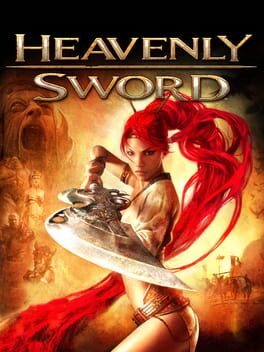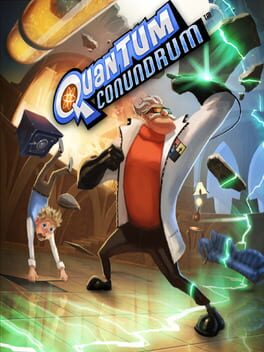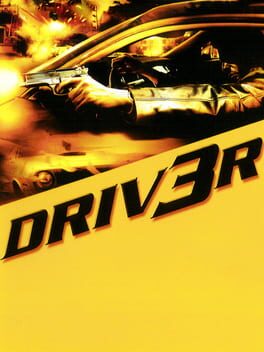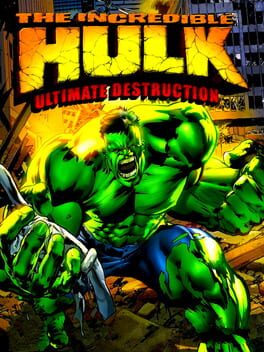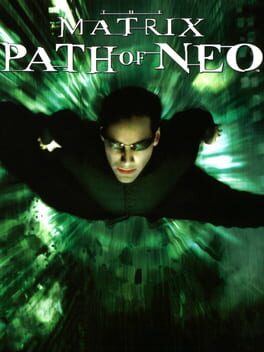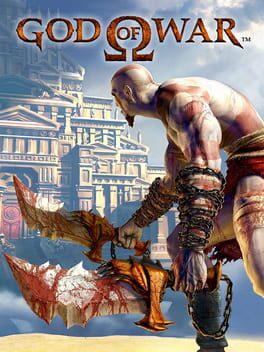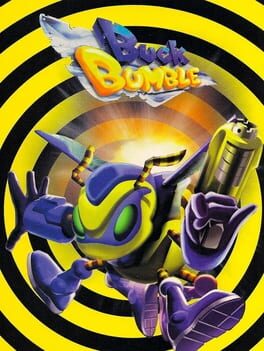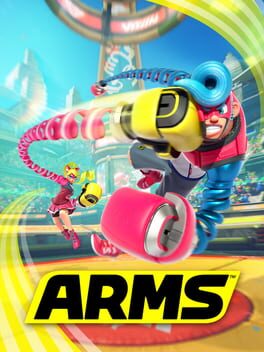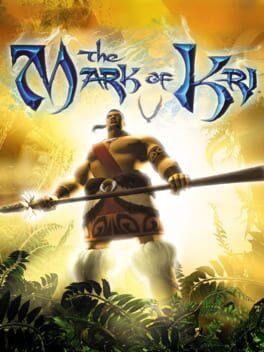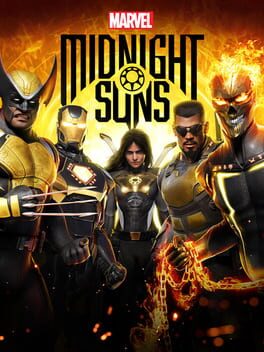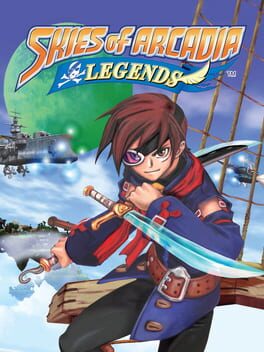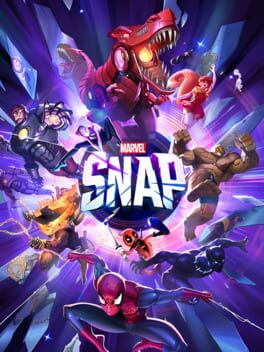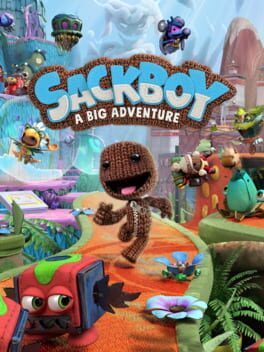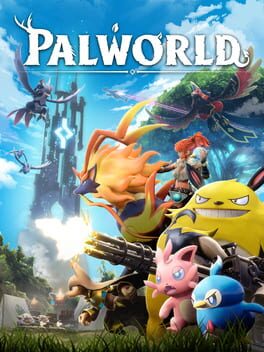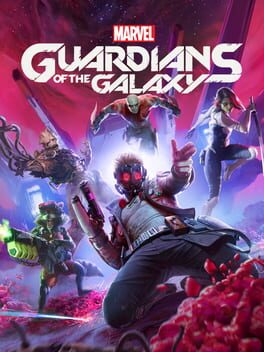BombsOverBaghdad
2007
Heavenly Sword was a project borne into a rough situation. Being one of the PlayStation 3’s headlining exclusives at the time meant it had the unenviable task of trying to sell the PS3 in 2007, which meant it had to convince people of two things: 1.That the PlayStation Triple Ballin’ was worth paying $599 US Dollars for and 2.That the SixAxis wasn’t a pile of shit. Unfortunately, this was not a task Heavenly Sword nor its developer Ninja Theory were up for.
Heavenly Sword certainly looks great. If there’s something Ninja Theory has always been good at, it’s the visual design of their games. There are some very good character designs here, the main character Nariko being the obvious standout, and your journey takes you through these lush locations inspired by both Eastern and Western fantasy (Ninja Theory named Crouching Tiger, Hidden Dragon and Lord of the Rings as inspirations) that keep the game still looking good despite the fact it’s rapidly approaching 20 years old. The game isn’t free from technical issues, however. There’s constant framerate drops and some absolutely vicious screen tearing, and inconsistent audio mixing where cutscenes will be much quieter than gameplay.
When it comes to gameplay, that’s probably Heavenly Sword’s biggest stumble. In this game you block attacks automatically while you’re not attacking. If you press Triangle at the right time while blocking, you’ll counter their attack. Another wrinkle is added with your stances. You have three stances, and your stance has to match your attacker’s in order to block their attacks. In theory this discourages mindless button-mashing, in practice this and a crappy dodge roll just ends up with you constantly getting hit out of your combos, leading to a combat system that isn’t very fun, especially since you have to use the dreaded SixAxis to initiate air combos. Boss battles alleviate this a bit since you only have one enemy to worry about, but they’re extremely mediocre and one-note, which wouldn’t be such a problem if they didn’t take so goddamn long to get over with. They made 5-minute bosses that take 10+ minutes to beat.
The hack & slash gameplay isn’t all you’ll be doing here. At times you’ll be controlling Nariko’s friend Kai, whose weapon of choice is her trusty crossbow. Kai’s sections are the worst parts of the game. They move at a snail’s pace and you have to deal with aiming so bad you’ll struggle to hit enemies at point-blank range.
These days Heavenly Sword seems to have been almost entirely forgotten, and it’s no mystery as to why. Apart from its looks and cinematic presentation, there’s very little here to recommend. Doesn’t help that it released just two weeks before Halo 3. “Don’t buy an Xbox 360 and Halo 3, buy a PS3 and Heavenly Sword instead!” is an extremely hard sell. Really, I think the most interesting thing about Heavenly Sword is the context in which it was released. I have a fascination with early 7th gen releases. They have a special kind of jank that is different from that of the previous gen and also later in the generation. It’s a jank borne from developers still getting used to HD development being very excited to show off what they can do with the new hardware but whose reach still exceeded their grasp. That’s Heavenly Sword to a tee. As a game it’s not very good, but as a piece of PS3 history I’m genuinely enamored with it.
Heavenly Sword certainly looks great. If there’s something Ninja Theory has always been good at, it’s the visual design of their games. There are some very good character designs here, the main character Nariko being the obvious standout, and your journey takes you through these lush locations inspired by both Eastern and Western fantasy (Ninja Theory named Crouching Tiger, Hidden Dragon and Lord of the Rings as inspirations) that keep the game still looking good despite the fact it’s rapidly approaching 20 years old. The game isn’t free from technical issues, however. There’s constant framerate drops and some absolutely vicious screen tearing, and inconsistent audio mixing where cutscenes will be much quieter than gameplay.
When it comes to gameplay, that’s probably Heavenly Sword’s biggest stumble. In this game you block attacks automatically while you’re not attacking. If you press Triangle at the right time while blocking, you’ll counter their attack. Another wrinkle is added with your stances. You have three stances, and your stance has to match your attacker’s in order to block their attacks. In theory this discourages mindless button-mashing, in practice this and a crappy dodge roll just ends up with you constantly getting hit out of your combos, leading to a combat system that isn’t very fun, especially since you have to use the dreaded SixAxis to initiate air combos. Boss battles alleviate this a bit since you only have one enemy to worry about, but they’re extremely mediocre and one-note, which wouldn’t be such a problem if they didn’t take so goddamn long to get over with. They made 5-minute bosses that take 10+ minutes to beat.
The hack & slash gameplay isn’t all you’ll be doing here. At times you’ll be controlling Nariko’s friend Kai, whose weapon of choice is her trusty crossbow. Kai’s sections are the worst parts of the game. They move at a snail’s pace and you have to deal with aiming so bad you’ll struggle to hit enemies at point-blank range.
These days Heavenly Sword seems to have been almost entirely forgotten, and it’s no mystery as to why. Apart from its looks and cinematic presentation, there’s very little here to recommend. Doesn’t help that it released just two weeks before Halo 3. “Don’t buy an Xbox 360 and Halo 3, buy a PS3 and Heavenly Sword instead!” is an extremely hard sell. Really, I think the most interesting thing about Heavenly Sword is the context in which it was released. I have a fascination with early 7th gen releases. They have a special kind of jank that is different from that of the previous gen and also later in the generation. It’s a jank borne from developers still getting used to HD development being very excited to show off what they can do with the new hardware but whose reach still exceeded their grasp. That’s Heavenly Sword to a tee. As a game it’s not very good, but as a piece of PS3 history I’m genuinely enamored with it.
2012
2004
Not the best superhero game ever, but it might be the coolest. Turning buses into skateboards, making boxing gloves out of cars, suplexing enemies off the top of skyscrapers, this game constantly has you doing the coolest shit imaginable. It’s a game made up entirely of the stuff kids would imagine doing whenever they would put on a pair of those big plastic Hulk hands toys. No superhero game has encapsulated the power fantasy of its titular character quite like this one.
2005
”Let the rage of the gods drive your blades, Kratos”
Despite owning both a PS2 and PS3 and loving the PSP games, I’ve never touched the original God of War series, beyond playing III Remastered when it was free on PS+ a few years ago. Finally playing the original God of War nearly 20 years after its release, I find myself far more impressed with it than I am with GoW 2018 and Ragnarok. Don’t get me wrong, this game is worse in several respects that I will get into and I don’t mean to turn this into and an ‘old vs new’ thing, but I guess what I’m trying to say here is that I just respect this game’s ambitions more.
The new God of War games are one of the few things I’ll readily call pretentious, cloaking themselves in an air of maturity and prestige that comes across like a child wearing his father’s clothes. The original God of War series, on the other hand, is famously very juvenile, but also feels much more honest. It knows what kind of game and story it is and doesn’t pretend to be anything more than that. The narrative here isn’t exactly one of the greatest gaming has to offer, but it’s effective and I do like the way Kratos is portrayed here. He’s a compelling protagonist with sympathetic qualities, but he’s also not a good person and the game doesn’t even try to convince you otherwise. Kratos puts the ‘anti’ in ‘anti-hero’; he’s at best ambivalent towards the suffering of others and at his worst will readily sacrifice others to achieve his goals without a second thought or any hint of remorse. You can see a clear line from the anti-hero he is here to the straight up villain he becomes in III.
Where the game falls flat is unfortunately in the combat, it’s meat and potatoes. The actual combat system is great, the blades of chaos are tons of fun. The real problem is how the enemy encounters are designed. Fights drag on for way too long, each one feeling like it should’ve ended 3-5 enemies ago. There were so many instances where I was begging the game to just wrap it up already. This wouldn’t be such a problem if the enemies weren’t such damage sponges. Even the weakest most basic enemies feel like they take 10 too many hits to kill. Sure, using your magic abilities alleviate this a bit, but your magic bad drains quick and again, there are way too many enemies in each fight.
Unfortunately the combat isn’t where the frustrations end, as the team at Santa Monica had some really funny ideas of what constituted an enjoyable challenge when it came to puzzles and platforming. Many of the puzzle/platforming sections are much longer than they need to be and offer such little room for error that it makes them not just difficult, but frustrating. There’s one section where you have to slowly push a box uphill while enemies infinitely spawn around you and I refuse to believe anyone played that and thought it was fun. My own personal hell is just being forced to play the Challenge of Hades for all of eternity.
God of War is clearly a very rough game and while I can’t say my enjoyment outweighed my frustration, I’m glad I played it, if only so I could have the full context of the series’ roots. This was clearly the work of a team, with the next generation of gaming on the horizon, trying to squeeze absolutely everything they can out of the PS2 while they still can, and that’s very admirable.
Despite owning both a PS2 and PS3 and loving the PSP games, I’ve never touched the original God of War series, beyond playing III Remastered when it was free on PS+ a few years ago. Finally playing the original God of War nearly 20 years after its release, I find myself far more impressed with it than I am with GoW 2018 and Ragnarok. Don’t get me wrong, this game is worse in several respects that I will get into and I don’t mean to turn this into and an ‘old vs new’ thing, but I guess what I’m trying to say here is that I just respect this game’s ambitions more.
The new God of War games are one of the few things I’ll readily call pretentious, cloaking themselves in an air of maturity and prestige that comes across like a child wearing his father’s clothes. The original God of War series, on the other hand, is famously very juvenile, but also feels much more honest. It knows what kind of game and story it is and doesn’t pretend to be anything more than that. The narrative here isn’t exactly one of the greatest gaming has to offer, but it’s effective and I do like the way Kratos is portrayed here. He’s a compelling protagonist with sympathetic qualities, but he’s also not a good person and the game doesn’t even try to convince you otherwise. Kratos puts the ‘anti’ in ‘anti-hero’; he’s at best ambivalent towards the suffering of others and at his worst will readily sacrifice others to achieve his goals without a second thought or any hint of remorse. You can see a clear line from the anti-hero he is here to the straight up villain he becomes in III.
Where the game falls flat is unfortunately in the combat, it’s meat and potatoes. The actual combat system is great, the blades of chaos are tons of fun. The real problem is how the enemy encounters are designed. Fights drag on for way too long, each one feeling like it should’ve ended 3-5 enemies ago. There were so many instances where I was begging the game to just wrap it up already. This wouldn’t be such a problem if the enemies weren’t such damage sponges. Even the weakest most basic enemies feel like they take 10 too many hits to kill. Sure, using your magic abilities alleviate this a bit, but your magic bad drains quick and again, there are way too many enemies in each fight.
Unfortunately the combat isn’t where the frustrations end, as the team at Santa Monica had some really funny ideas of what constituted an enjoyable challenge when it came to puzzles and platforming. Many of the puzzle/platforming sections are much longer than they need to be and offer such little room for error that it makes them not just difficult, but frustrating. There’s one section where you have to slowly push a box uphill while enemies infinitely spawn around you and I refuse to believe anyone played that and thought it was fun. My own personal hell is just being forced to play the Challenge of Hades for all of eternity.
God of War is clearly a very rough game and while I can’t say my enjoyment outweighed my frustration, I’m glad I played it, if only so I could have the full context of the series’ roots. This was clearly the work of a team, with the next generation of gaming on the horizon, trying to squeeze absolutely everything they can out of the PS2 while they still can, and that’s very admirable.
1998
2017
Arms seemingly had everything it needed to be a hit. A unique gameplay conceit, a fun cast of characters, and a colorful world. Arms looked like it could be to the Switch what Splatoon was to the Wii U and Nintendo seemed to be banking on it, capitalizing on its prospective success by announcing a graphic novel based on the game published by Dark Horse comics. At first, Arms did become the success Nintendo was hoping it’d be, receiving positive reviews from most publications and eventually going on to sell over two million copies. This success wouldn’t last because as it turns out, the game was called Arms because it had no legs.
Unlike Splatoon, which retained a very dedicated fanbase, once the hype died down people just kinda stopped talking about Arms. It’s easy to understand why. It’s a fun game for the first few minutes you play it, but it’s far too gimmicky for hardcore fighting game players to have any interest and is too lacking in content to keep the attention of casual players, a problem which would go unsolved as the game would receive only a few content updates in the form of characters and stages before support stopped in December 2017, just 6 months after release. With that, the Arms franchise basically died before it got the chance to even become a franchise. The graphic novel went radio silent for years before being officially canceled in 2021, and there’s been no talks of any sort of proper sequel. The most Nintendo would acknowledge Arms after 2017 was putting Min-Min in Super Smash Bros Ultimate, a move which angered millions of people who believe Smash’s roster should be populated entirely by characters from video games they played when they were 6.
For all its faults, Arms had a ton of potential and it’s a shame that potential has gone unfulfilled. There are some crazy good character designs here and some really whacky lore that I could easily envision a sequel expanding on. On the other hand though, Arms will be lost to time and I can’t really say it doesn’t deserve to be.
Unlike Splatoon, which retained a very dedicated fanbase, once the hype died down people just kinda stopped talking about Arms. It’s easy to understand why. It’s a fun game for the first few minutes you play it, but it’s far too gimmicky for hardcore fighting game players to have any interest and is too lacking in content to keep the attention of casual players, a problem which would go unsolved as the game would receive only a few content updates in the form of characters and stages before support stopped in December 2017, just 6 months after release. With that, the Arms franchise basically died before it got the chance to even become a franchise. The graphic novel went radio silent for years before being officially canceled in 2021, and there’s been no talks of any sort of proper sequel. The most Nintendo would acknowledge Arms after 2017 was putting Min-Min in Super Smash Bros Ultimate, a move which angered millions of people who believe Smash’s roster should be populated entirely by characters from video games they played when they were 6.
For all its faults, Arms had a ton of potential and it’s a shame that potential has gone unfulfilled. There are some crazy good character designs here and some really whacky lore that I could easily envision a sequel expanding on. On the other hand though, Arms will be lost to time and I can’t really say it doesn’t deserve to be.
2002
Nice art direction, but everything else is middling to bad. The movement has this weird stiff and jittery feeling to it. The player character runs like he’s got pudding in his shoes and every step makes the camera kinda just jut forward a bit. The combat is marred by an uncooperative camera and a serious lack of impact on hits. It feels more like you’re whacking enemies with a pillow than slashing them with a sword. I have an appreciation for 6th gen jank, but in my short time with The Mark of Kri I couldn’t find anything underneath the jank to make it worth playing.
A genuinely great card-based tactical RPG unfortunately shackled to ill-advised social mechanics and a story filled with sub-Whedon dialogue. I tried to just focus on the combat but there’s so much bloat surrounding it that it just makes the game feel like a chore to get through, so I’m throwing in the towel on this one. I just can’t play any more of this.
2022
The LittleBigPlanet games have always been mediocre at best platformers, but the platforming was never the main draw. The true appeal of LittleBigPlanet wasn’t the game developed by Media Molecule, but the game(s) created by the players in Create mode, a mode so expansive that users can create games in damn near any genre. Experiencing the boundless creativity of others is what really drove the success of the LittleBigPlanet trilogy. When you get rid of the Create mode, all you’re left with is a mildly charming but extremely middling platformer, and unfortunately that’s the case here.
2024
Guardians of the Galaxy is a game that genuinely surprised me. Not just that it’s good, but how it’s good. I didn’t go into this game expecting it to be as strong of a narrative as it is, and that narrative is really what has earned this game such a high score, as I think it’s the real star of the show.
At its heart, Guardians of the Galaxy is a story not just about five very flawed (except for Groot, who is perfect) people becoming a found family, but also about not letting the pain and trauma in your past consume you. Each of the Guardians are confronted with their trauma and must learn to accept it and not let it rule their lives anymore.
Really, the game’s primary interest is in exploring the Guardians as people. Each Guardian has a series of collectibles to find, and they reward you for doing so with optional conversations where they reveal more about their backstories and internal struggles. As the game progresses and the Guardians grow closer, their conversations gradually go from petty arguments and bickering into friendly banter and genuine heartfelt moments.
It helps that Guardians here are the best they’ve ever been. They’re essentially just better versions of their movie counterparts. Gamora has a much stronger personality, Drax’s literal-mindedness and lack of filter are actually funny, Star-Lord isn’t played by Chris Pratt, Rocket is at his best, Groot is Groot (by which I mean he’s perfect), and we’re treated to what is the absolute best version of Mantis, bar none. Everytime she appeared felt like the game was giving me a little treat.
Eidos Montreal’s previous game, Marvel’s Avengers, has many, many problems, and in my eyes the greatest of its sins is that it was so bad it totally poisoned the well for this game. Guardians of the Galaxy arrived with little fanfare and didn’t sell very well, a fate that it didn’t deserve because it’s truly something special.
At its heart, Guardians of the Galaxy is a story not just about five very flawed (except for Groot, who is perfect) people becoming a found family, but also about not letting the pain and trauma in your past consume you. Each of the Guardians are confronted with their trauma and must learn to accept it and not let it rule their lives anymore.
Really, the game’s primary interest is in exploring the Guardians as people. Each Guardian has a series of collectibles to find, and they reward you for doing so with optional conversations where they reveal more about their backstories and internal struggles. As the game progresses and the Guardians grow closer, their conversations gradually go from petty arguments and bickering into friendly banter and genuine heartfelt moments.
It helps that Guardians here are the best they’ve ever been. They’re essentially just better versions of their movie counterparts. Gamora has a much stronger personality, Drax’s literal-mindedness and lack of filter are actually funny, Star-Lord isn’t played by Chris Pratt, Rocket is at his best, Groot is Groot (by which I mean he’s perfect), and we’re treated to what is the absolute best version of Mantis, bar none. Everytime she appeared felt like the game was giving me a little treat.
Eidos Montreal’s previous game, Marvel’s Avengers, has many, many problems, and in my eyes the greatest of its sins is that it was so bad it totally poisoned the well for this game. Guardians of the Galaxy arrived with little fanfare and didn’t sell very well, a fate that it didn’t deserve because it’s truly something special.
